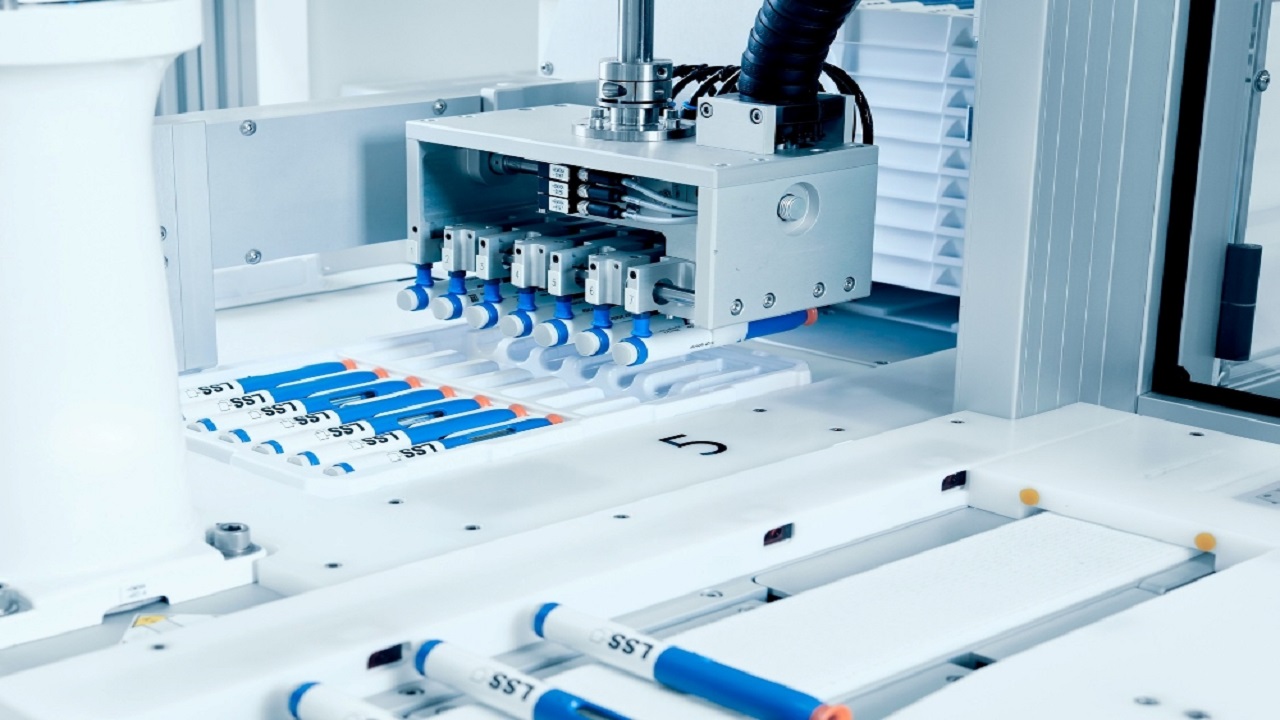The pharmaceutical industry is highly sensitive to precision and adhering to the rules and guidelines when labeling auto-injector devices. Labeling machines used in auto-injector production need to have specific production characteristics and must follow certain regulatory guidelines. It is possible to choose specific features that will allow these machines to fit the requirements of a particular application, productivity, precision, and standards. This article will explain the various possibilities in terms of customized features, for auto injector labeling machines.
Positioning and Placement Precision Labeling
Various auto-injector devices call for different labeling positions, such as wrap-around labels, front and back labels, or aligned for easy reading. The machines can be adjusted to fit the needs of the product, and the label placement is accurate to within 1mm. Such accuracy is required for showing important details such as the dosage and the date by which the product should be consumed.
Accommodate Product Shapes and Sizes
Auto-injector devices are available in cylindrical, conical, triangular, and cartridge types depending on the design. Customizable labeling machines can handle:
- Small containers such as 10mm in diameter.
- Bigger pens and syringes (up to 30mm)
- This flexibility makes it easy to fit into production lines irrespective of the range of products.
Integration with Production Lines
Today’s labeling machines can be designed to integrate with other production lines in the production process. Some of the operational aspects include automatic feeding, tray inserting systems, and product collection systems. This integration reduces the amount of time that is spent on manual intervention, increases efficiency, and reduces the amount of time that is spent on production.
Serialization and Traceability Features
Legal demands sometimes call for the serialization of labels for pharmaceutical products. Customized machines can include:
- Ability to print the batch number, expiration date, and any other identification in line with the product.
- Systems for vision inspection to check printed data and to provide traceability.
- Such assists the organization in compliance with FDA and GMP regulations, and the supply chain becomes more transparent.
Features of Tamper-Evident Protective Measures
Tamper-evident labels are important for guaranteeing the security and quality of products in the pharmaceutical field. Some of the custom machines can be applicators for tamper-evident seals and protective covers for sensitive parts. These features enable the product to be protected, as well as the consumers or users of that product.
Speed and Output Optimization
Manufacturers differ in terms of production volumes. The ability to set the speed of the machine according to the output needs of the business, from small runs to large production runs of up to 500 pieces per minute makes the machine versatile for growing businesses.
High-Tech Quality Assurance Programs
The labeling process requires that quality control measures be incorporated right from the design stage. Custom options include:
- Essentially, such vision systems are useful to check the alignments and precisions of the labels.
- Detectors for missed or defective labels.
- Self-elimination procedures for products that do not meet the requirements of the standard.
Conclusion
Options for auto-injector labeling machines allow manufacturers to adjust the system to specific requirements of their operation. As such, these solutions aim at improving the organization, flexibility, accuracy, and compliance of the labeling process output to meet the legal requirements. Purchasing a labeling machine is not only a business decision; it is a call to quality production of pharmaceutical products.

